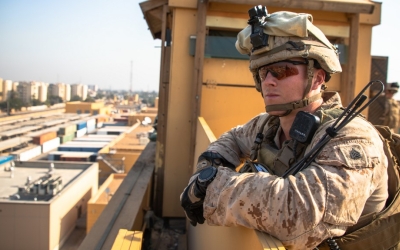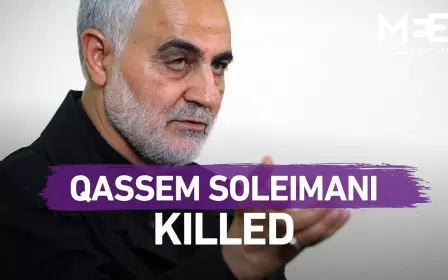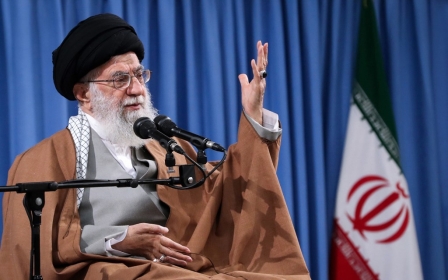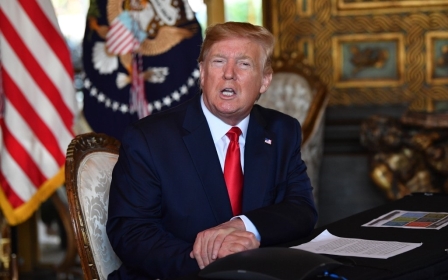Will killing Qassem Soleimani help Trump get reelected?
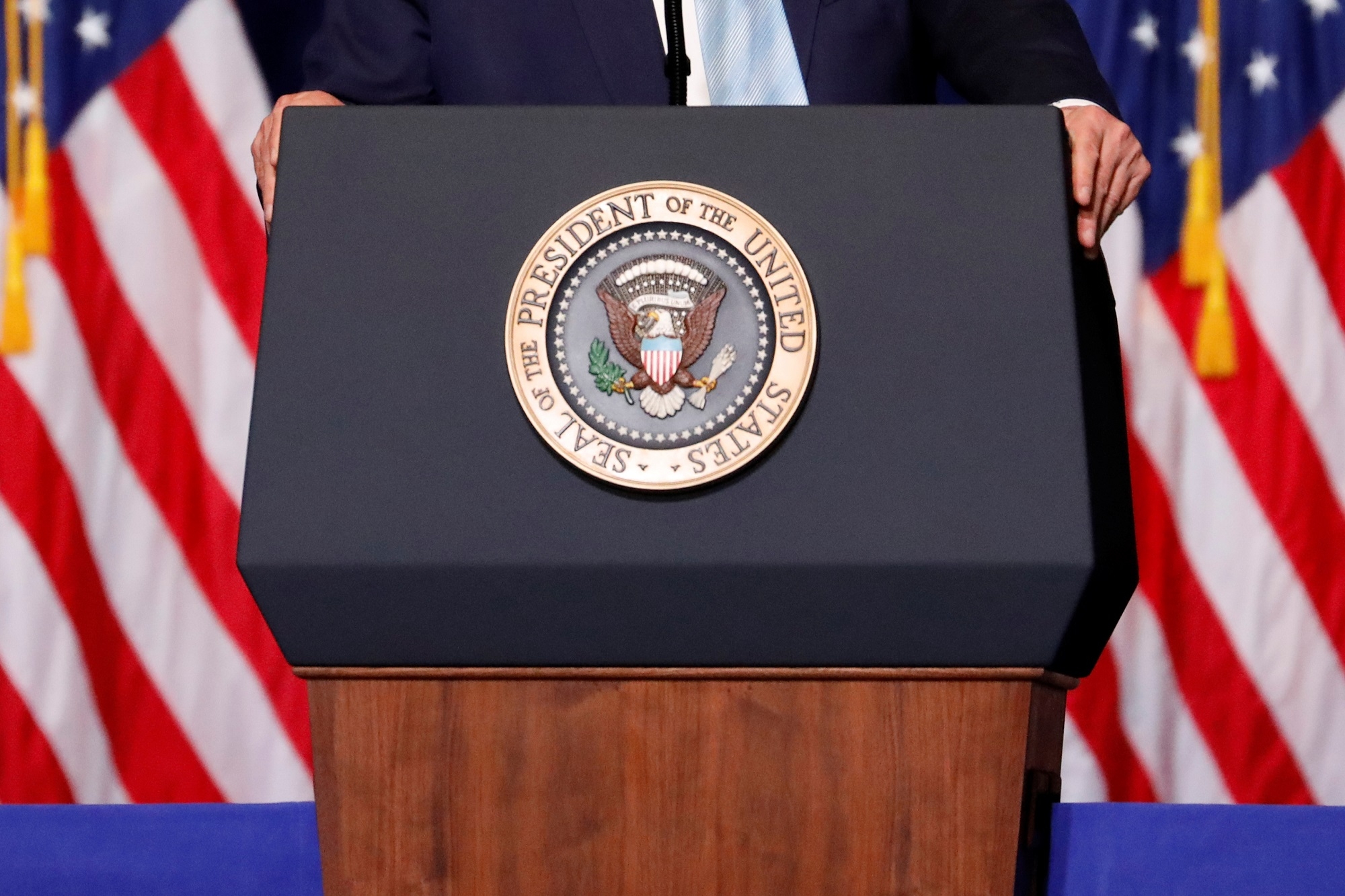
They say what you publish on the internet is written in ink, it can't be erased, and in the case of Donald Trump - a notorious Twitter user - there is a lot of ink out there linked to the US president.
As soon as the news of the US air strike that killed Qassem Soleimani broke in Washington on Thursday, commentators recalled several 2011 tweets by Trump in which he accused then-president Barack Obama of planning to start a war with Iran to get re-elected.
Trump's old social media posts served as fuel for critics who speculated that the president ordered the assassination of Soleimani to boost his own re-election campaign before November.
New MEE newsletter: Jerusalem Dispatch
Sign up to get the latest insights and analysis on Israel-Palestine, alongside Turkey Unpacked and other MEE newsletters
Trump abandoned the multinational Iran nuclear deal in May 2018 and later began reimposing sanctions on the Iranian economy, intensifying the animosity between Washington and Tehran.
The tensions reached a peak after a rocket attack in Kirkuk blamed on Iran-backed Iraqi fighters killed an American contractor last week, setting off a chain of events culminating in the killing of the influential Iranian general in Baghdad.
Trump's detractors were quick to accuse him, much as he had charged Obama seven years earlier, with instigating conflict for political gains.
"There's some evidence indicating a kind of rally-around-the-flag effect, whereby when Americans are confronted with a war, they'll support the president leading that war," said Ethan Porter, assistant professor of media and public affairs at the George Washington University.
'Presidents mostly win re-election; in part, they do so because they have the power of the American military at their disposal'
- Ethan Porter, public affairs professor
In fact, Trump's first tweet after the assassination was a low-resolution photo of an American flag.
Still, the situation is complicated, Porter said. If the conflict were to turn disastrous, the political benefits would be limited.
Furthermore, the election is 10 months away. If the fallout from the assassination concludes months before November, it may escape the attention of the American voters, and therefore it would have only minimal effects on the voting, Porter said.
War and elections
That's what happened with George H W Bush and the first Gulf War. Bush, the father, rallied 35 nations from around the world in the summer of 1990 to push back against Saddam Hussein's invasion of Kuwait.
The coalition won the war and kicked the Iraqi army out of Iraq swiftly - so swiftly that by the time election season came in 1992, Bill Clinton was able to focus the public's attention on the struggling economy rather than on Bush's astute handling of the conflict.
Needless to say, Clinton comfortably won the election that year and made the late Bush a one-term president.
"If indeed Trump is doing this for political gains - and we don't know, good luck on trying to understand why he does what he does - it's too early to say if it will succeed in achieving that objective," Porter told Middle East Eye.
The ramifications of Soleimani's killing on US domestic politics are unclear at this point, and even more uncertain is whether Trump did authorise the strike for political purposes. Still, according to Porter, presidents do usually consider how major decisions may affect their re-election chances.
"Across administrations and across parties, typically presidents devote their last year in their first term to doing whatever they can to shore up their re-election chances - to great success," he said.
"Incumbency is a powerful thing. Presidents mostly win re-election; in part, they do so because they have the power of the American military at their disposal."
While George H W Bush lost his re-election bid after a successful war, his son was re-elected in 2004 while struggling with two messy conflicts - in Iraq and Afghanistan.
Still, cracks in the support for Bush's Republican Party were on full display four years after his re-election.
In one sense, the 2008 election was a referendum on the Iraq War. Obama, who wanted to pull American troops out of Iraq, defeated the late Senator John McCain, who had said he would be willing to keep US soldiers in Iraq for as long as 100 years.
Even Trump, despite his abrasive approach to domestic and international affairs, won the presidency in 2016 while promising to put an end to America's wars in the region.
From 'peace candidate' to war president
In the eight years since the Obama-McCain race, the pendulum of US domestic politics had swung back and it was the Republican nominee accusing his Democratic opponent of being too hawkish.
A new isolationist right-wing base that opposed military interventions had favoured Trump over primary Republican candidates who adopted views closer to Bush's neoconservative policies.
In fact, Trump touted his supposed opposition to Bush's Iraq war in a comprehensive address on foreign policy in April 2016.
'On foreign policy, Hillary is trigger happy'
- Donald Trump, 2016
"Unlike other candidates for the presidency, war and aggression will not be my first instinct. You cannot have a foreign policy without diplomacy," he said.
In the speech, he went on to berate Hillary Clinton's interventionist policies - particularly in Libya - when she was serving as Obama's secretary of state.
"On foreign policy, Hillary is trigger happy," he told his supporters at a rally a month later.
So, can the transformation from a perceived "peace candidate" to a war president benefit him four years later?
Wary of the wars in Iraq and Afghanistan, Americans do not want their government to get involved in another military conflict in the region, public opinion polls show.
War with Iran is not particularly popular in the US. A Gallup poll published in August showed that 78 percent of Americans favour non-military options to deal with Tehran's nuclear programme, while 65 percent of respondents said they were concerned that the US may be "too quick" to use military force against Iran.
Still, public opinion often shifts after major incidents, and Soleimani's assassination is dominating the news cycle.
"People's attention now is going to be focused on this event, and there might be some large fluctuation in their attitudes towards military conflict and attitudes towards Iran, based on what happens over the next few days and weeks," Porter said.
Middle East Eye delivers independent and unrivalled coverage and analysis of the Middle East, North Africa and beyond. To learn more about republishing this content and the associated fees, please fill out this form. More about MEE can be found here.


